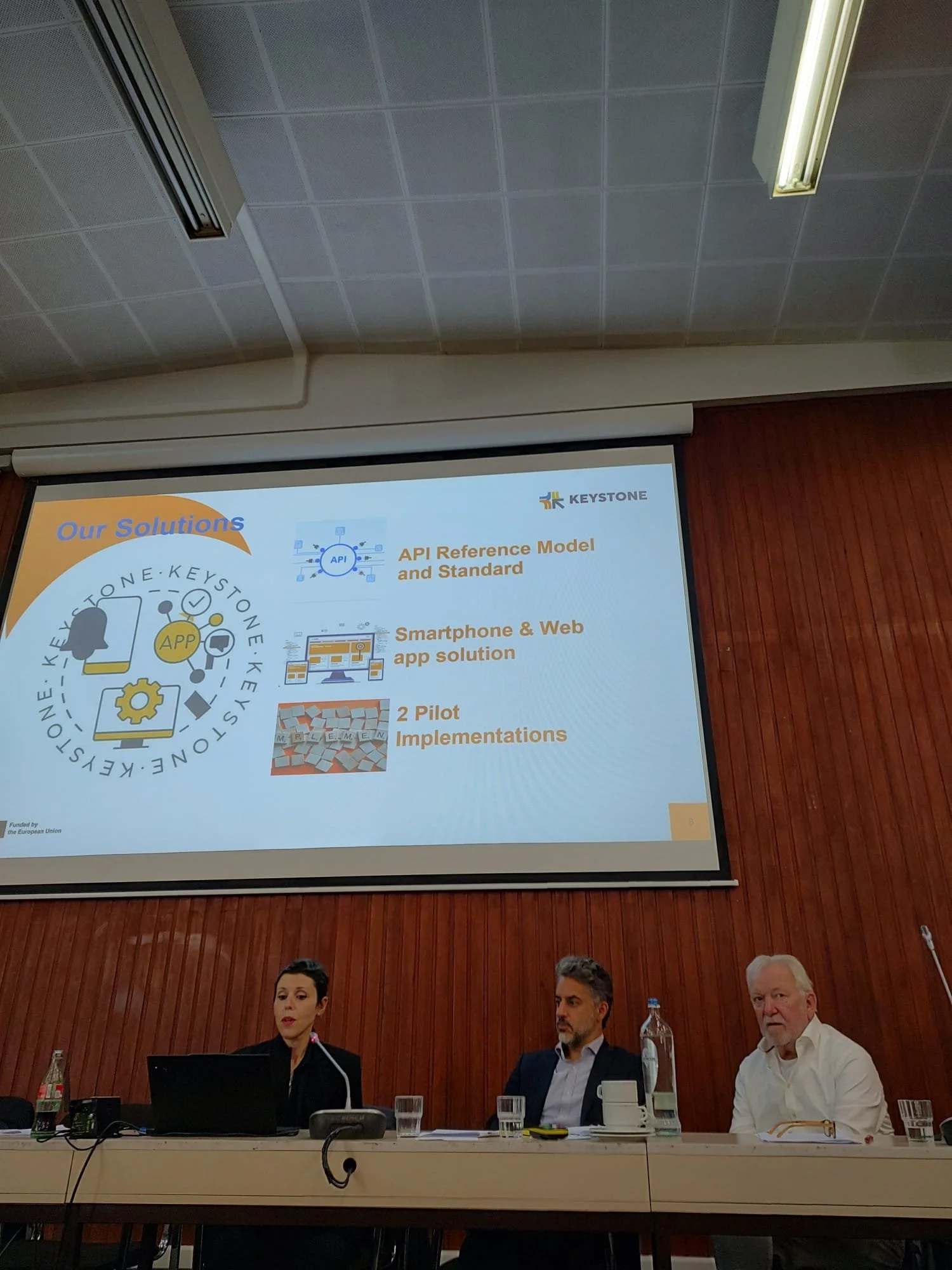Bridging the Gaps in EU Road Transport Enforcement: KEYSTONE’s Relevance Highlighted at CORTE Meeting
Zoe Petrakou of Aethon Engineering showcasing the KEYSTONE web application solution at the CORTE Enforcement Working Group Meeting.
The CORTE Enforcement Working Group Meeting held in Brussels on 1 October 2025, offered a timely opportunity to reflect on the complexities of enforcing EU road transport rules and the critical role of digital tools in addressing these challenges. Among the key takeaways was the growing relevance of the KEYSTONE Project, whose results were presented as a solution to many of the issues discussed.
Smart tachographs and the existing digital data-sharing landscape
The meeting showcased recent advancements in tools such as the tachograph, vital for monitoring driver activity. The latest version, Smart Tachograph Version 2 (G2V2), now includes Bluetooth connectivity, enabling the development of mobile applications that can allow drivers to track their time and make manual entries.
The role of platforms like EUCARIS (and MOVEhub) was also discussed to enhance cross-border data exchange between enforcement authorities. These tools are also being updated to allow real-time access for roadside inspectors, improving operational efficiency.
The Future: eFTI and the push for seamless data sharing
Audience of the CORTE Working Group held on 1 October 2025.
The upcoming electronic Freight Transport Information (eFTI) system, developed under the eFTI Regulation, was also presented. It promises to revolutionise data sharing across Europe. By enabling both business-to-business and business-to-authority interactions, eFTI will simplify access to transport-related data and support more efficient enforcement.
Persistent challenges: fragmentation and interoperability
Despite these innovations, the meeting also discussed ongoing practical challenges. Enforcement authorities and transport companies often rely on disconnected digital platforms, each offering only partial insights into a transport operation. This fragmentation leads to continued reliance on paper-based data exchange and limits the effectiveness of enforcement efforts.
KEYSTONE’s contribution
In this context, the KEYSTONE Project can emerge as a key enabler of interoperability. Its presentation during the meeting underscored how KEYSTONE’s API standards and the Web application can serve as a single entry point for multiple enforcement and logistics applications. This approach directly addresses the fragmentation issue and can offer a unified framework for data exchange.
KEYSTONE’s Digital Mandate: Standardised API for eFTI
Zoe Petrakou, from Aethon Engineering, introduced KEYSTONE’s mission to develop a standardised API Reference Model and Python library. This “plug-and-play” solution supports multimodal transport services, enabling consistent and interoperable data exchange for compliance, operations, and analytics—even for small and medium-sized enterprises (SMEs).
The meeting also sparked interest in KEYSTONE’s API standards and their use across the different platforms.
Conclusion: Relevance Reinforced
Overall, the discussions reinforced the strategic relevance of the KEYSTONE Project. By addressing the core challenges of interoperability, fragmentation, and accessibility, KEYSTONE solutions have the potential to play an important role in digital enforcement in road transport.
Author: Author: Zoe Petrakou (Aethon Engineering)



